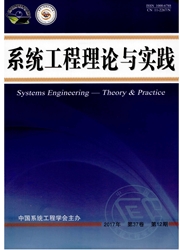

 中文摘要:
中文摘要:
2011年9月1日我国实行新个人所得税法.个人可支配收入不仅受到直接税(如个人所得税),同时也受到间接税(如消费税)的影响.这两种不同的税收对社会福利、以及宏观经济运行到底会有怎样的影响?我国的消费税应该做出怎样相应的改革?本文建立一般经济均衡模型分析征收个人所得税和企业消费税对社会福利水平及宏观经济各个方面的影响.以2010年经济运行数据作为基期校准各项参数,通过大量模拟计算显示,适当降低消费税税率、乡村居民个人收入税税率和适当调高城镇居民个人收入税税率,有利于乡村居民社会福利和收入水平的提高;其次,加大第一产业进口,或者减少第二产业出口,有利于两类居民社会福利水平、收入水平和消费需求增加;另外,第一产业净进口与第二产业净出口同步增长时,宏观经济各项指标均有改善,但是,第一产业将受到巨大冲击.最后,文章指出效用函数的替代弹性对社会福利总水平精度比生产函数的替代弹性的影响小.
 英文摘要:
英文摘要:
New individual income tax rates take effect on September 1, 2011. Besides these direct taxes, indirect taxes, such as consumption tax, also have an impact on individual's disposable income. How do these different taxes influence the welfare of society and economic activity in China? What are the suggestions given to policymakers? The research analyzes how personal income tax and consumption tax influence all aspects of the society, ranging from international trade to GDP. This paper builds a computable general equilibrium model and employs the 2010 national statistical data to indicate that both the reduction of consumption rate and personal income tax rate for individuals in rural areas and the increase of personal income tax rate for ones in urban will improve the welfare and income of rural population. Furthermore, expansion of imports in primary industry and decline of exports in secondary industry will raise the people's living standards, increase the overall well-being and promote the growth of domestic production. Besides, when net imports in primary industry and net exports in secondary industry increase simultaneously, the macroeconomic indicators will be better of at the cost of huge shock to primary industry. Finally, this paper indicates that elasticity of substitution in utility function has less effect on welfare compared to elasticity of substitution in production function.
 同期刊论文项目
同期刊论文项目
 同项目期刊论文
同项目期刊论文
 期刊信息
期刊信息
